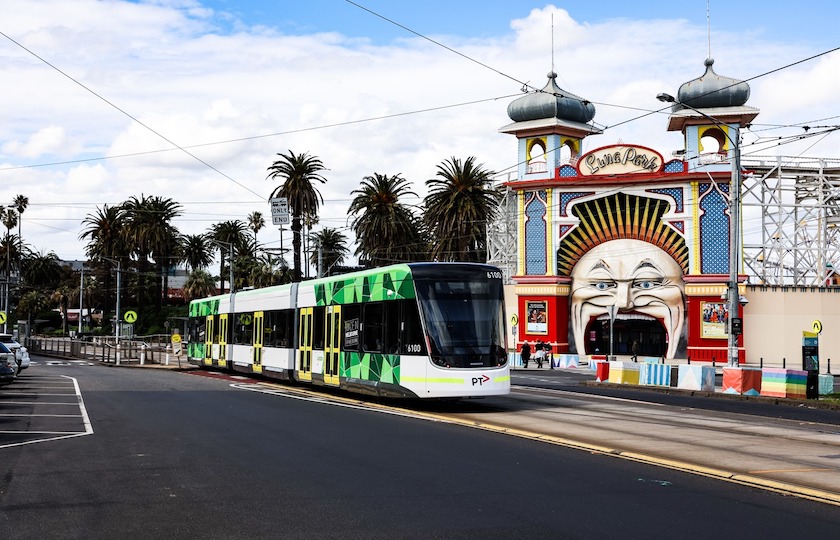A new generation of Melbourne city tram stops is in planning, using recycled plastics sourced from kerbside waste.
In a project run jointly by Monash University’s Institute of Railway Technology, Yarra Trams, Integrated Recycling and Advanced Circular Polymer (ACP), waste plastic will be repurposed to create innovative modular stations, making Melbourne’s tram network more sustainable, accessible for people with disabilities and less disruptive to maintain and develop.
Advanced Circular Polymer, which specialises in plastics-recycling technology, will supply the recycled plastic mix recovered from kerbside waste collections that will be used for the production of the base material in the tram stop platforms.
“This collaboration will explore new research and development to add value to recycled plastics through new product innovations,” says MD Harry Wang.
“Developing new value-added recycled products with advanced manufacturing is essential for the recycling sector to create demand and secure the supply chain for recycled plastics.”
Integrated Recycling will take the base material made from ACP and trial modular elements of tram stop platforms for testing and prototyping purposes.
The project has just received A$300,000 from the Victorian Government’s Recycling Victoria Research and Development Fund – Materials.
Director of the Monash Institute of Railway Technology, Professor Ravi Ravitharan said the project will identify how reinforced recycled plastics can be used effectively to construct a modular platform that can be rolled out on a large scale.
“Our team of researchers will look at a number of suitable options of recycled materials that can be manufactured into a prototype which will then be trial assembled and load tested at the Institute of Railway Technology laboratories,” said Ravitharan.
Melbourne boasts the world’s largest tram network stretching 250km across 24 routes with more than 1750 tram stops.
As the city and the Victorian Government look to future-proof the tram network, they are evaluating ways to create modular platforms at Melbourne city tram stops featuring hollow drainage features. Not only are they more sustainable and impact the environment less, but they will also be easier to construct, minimising disruption to traffic on the roadways they share, more resistant to flash flooding and more easily accessible by people with disabilities.
“This partnership with the Monash University Institute of Railway Technology is just one example of how Yarra Trams is working to make our operations more environmentally friendly,” says Yarra Trams CEO Julien Dehornoy.
“From all our trams being powered by one of Victoria’s largest solar farms to recycled materials being used in infrastructure projects across the network, to the ongoing installation of solar panels and energy-efficient lighting in our depots, we’re playing our part to create a greener and more sustainable Melbourne.”
Multiple departments from Monash University will work together on the project which is part of a broader mission to create a circular economy framework involving a complete supply chain of recycled materials that can be used in other parts of the tram system and expand into other public transport networks.
Ravitharan expects the project will create a broader awareness of the application of materials created from recycled waste plastics into railway platforms, bridges, domestic decking and level-crossing panels.
- Read more about projects to reduce or repurpose plastics waste on Viable.earth.



